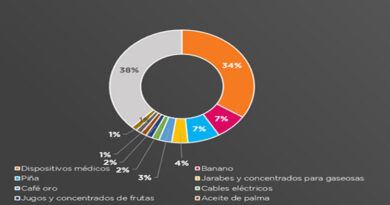Coronavirus: Is this the end of office working in Wales?
 Image copyright Getty Images
Image copyright Getty Images For many of us, our spare bedrooms or kitchen tables have become makeshift workplaces and a full return to the office seems a strange prospect.
However, some employers have not only come to accept their staff working from home but have found it beneficial.
«The pandemic has forced businesses to do things differently – things will never go back to exactly how they were before,» said Alun Jones of Hugh James.
So what does the future hold for office working in Wales?
Nearly half of all working adults (49%) in the UK are working from home due to coronavirus, according to the latest figures. Before the pandemic, it was just 5%.
If workers are to return to a central office, businesses are having to adapt to adhere to social distancing guidelines.
Staggered shift patterns, re-organising workspaces, flexible hours, extra cleaning and even one-way systems and temperature checks are among the measures many of the biggest private companies in Wales are introducing.
But some workers are unlikely to ever return.
«It’s true some companies have said that they could allow their workforce to work from home forever,» said Aude Bicquelet-Lock, deputy head of policy and research at the Royal Town Planning Institute.
«The CEO of Barclays said putting 7,000 people in the office might be a thing of the past.
«The experience of going to the office in Aberystwyth isn’t the same as going to the office in London. The decline of office space will affect small, medium and large cities in different ways.»
‘Reducing climate change’
For employees, the prospect of saving hours travelling to work every day has clear benefits for their wellbeing, work-life balance and wallets, as well as the climate.
Principality Building Society said it would be a «long time» until its Cardiff headquarters was ever full again and has encouraged its 800 staff to work from home until September – and possibly beyond.
Chief executive Julie-Ann Haines said the company has even seen benefits to home-working: «We have proven that people can be just as effective, if not more so, working from home.
«The benefits including trading daily commute time for increased time at home, for exercise or for personal development, are helping colleagues to feel more satisfied, engaged and more productive.
«Increased remote working will also have a positive impact on ensuring there is less traffic on the roads, supporting the improvements the globe is seeing in reduced carbon usage.»
Similarly, Hodge Bank is in «no rush» to return to its city centre head office.
Staff have worked from home throughout lockdown and, in a recent wellbeing survey, told company bosses they would prefer to work from home more in the long term.
‘Staff wellbeing’
«We have used this time to challenge ourselves as a business and ask – how do we want to work in the future?» said David Landen, interim chief executive.
«Now we’ve invested in the technology which allows our staff to work from home, we will continue to support colleagues to make the choice which best suits their lifestyle.
«For some, being in the office might be the right answer, while for others avoiding the commute and working around family commitments may work better.»
Having invested in the technology to enable staff to work from home, many companies have said they can now offer greater flexibility.
Hugh James Solicitors is adopting a «cautious» approach to reopening its workspaces with several measures to reduce numbers in its office.
«We’ve embraced new technology more than ever during this time. This will continue, even when the office is fully back up and running,» said Mr Jones.
«Remote meetings are set to stay. This is how the world does business now.»
Does anyone still want an office?
Working from home can present challenges, as Prof Robert Kelly discovered during a now-famous live interview from his home for BBC News which was interrupted by his wife and small children, earning him the nickname BBC Dad.
Others have missed the social interaction and creativity offered by working closer with colleagues.
There is currently almost one million sq ft (93,000 sq m) of office space available in the Welsh capital.
HMRC is due to move 3,600 staff into a new regional tax office centre, described as the largest office leasing deal ever completed in Wales.
A spokeswoman said HMRC remained «committed» to moving into the £100m building in February 2021 and was «developing medium and long-term plans» as to how staff will provide the service.
It is the latest phase in the Central Square development led by Rightacres.
«City centre locations will remain attractive to employers because people always need to collaborate to learn, to create, to innovate,» said chief executive Paul McCarthy.
«How do large companies create a culture or train new members of staff if they don’t come together?
«I think people like being in offices because they enjoy being part of a team as well as the social interaction.
«There had been a drive for people to work in smaller spaces. Computers are smaller so the desk space required is less and the density of people increased. That’s likely to change and we could start getting some space back.
«So it will be interesting to see how different occupiers set different trends on how they use that space over the coming years.
«We need people to come back to work to bring city centres back to life because there’s synergy between people working and cafes, sandwich bars, shops and pubs for socialising.»
It is not just in the country’s capital that office working will look different.
In Deeside, Flintshire, Iceland employs 700 people at its head office and anticipates difficulties returning to full capacity: «We have enhanced cleaning and all applicable social distancing measures in place to ensure that we provide a safe working environment for those who are unable to work from home.»
Go Compare’s office in Newport employs 268 people and has been largely empty throughout lockdown.
It will offer staff across the company «greater flexibility» over working patterns when they begin to return to the office.
«We aren’t planning to rush back to the office and the business is not at a disadvantage as a result,» said Alex Currie, vice-president of people and talent at GoCo Group.
«We will continue to monitor official guidance and, as always, put our employees’ health first.»


